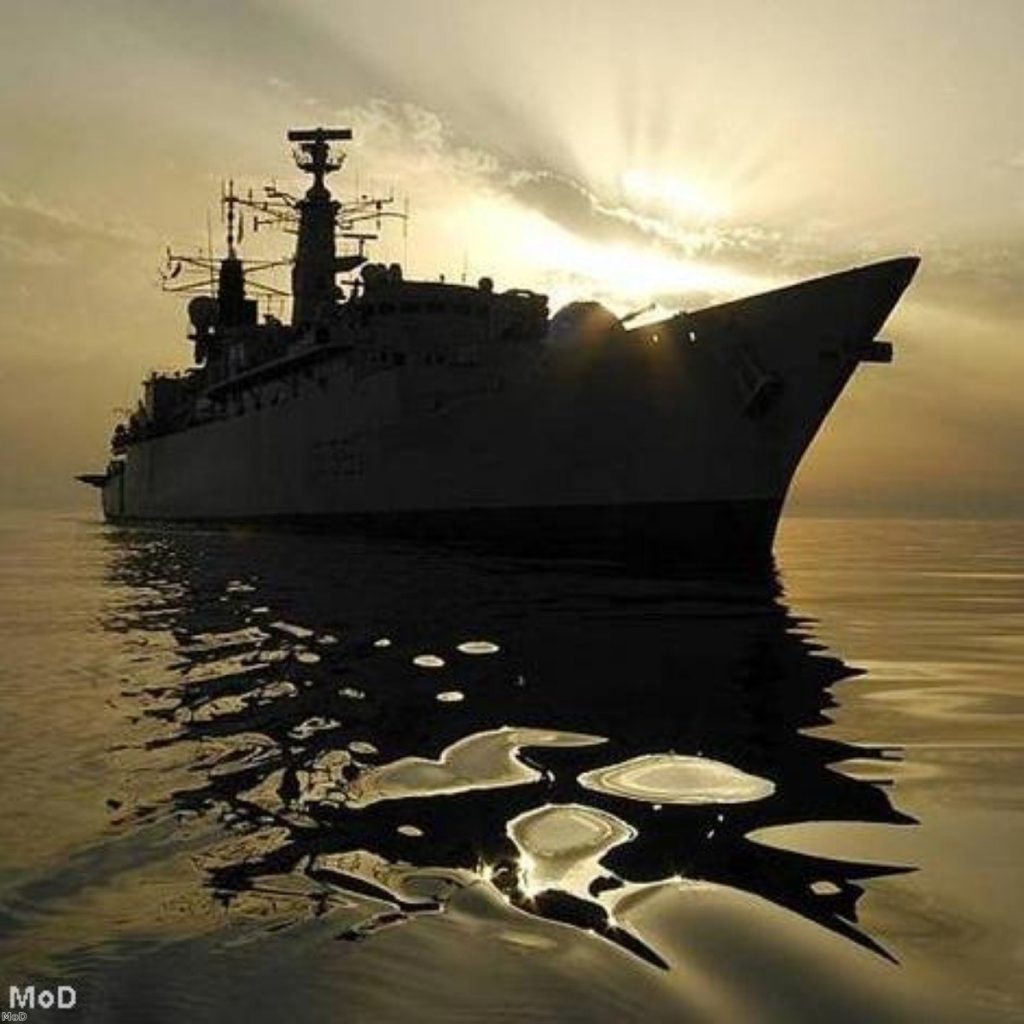Blair: ‘calm and firm’ diplomacy secured return
The 15 British sailors detained by Iran have returned to the UK after spending 13 days in captivity.
Their release has been hailed as a victory for diplomacy. The prime minister Tony Blair said the UK’s “firm, calm and measured” approach to Iran had paid off. Officials had not negotiated with Tehran and nor did they confront the Iranian government and risk the situation escalating, he said.
With the crew safely returned to the UK, Mr Blair turned his attention to the UK’s relationship with Iran and back to the “sober and ugly reality” of terrorism.
After Iranian president Mahmoud Ahmadinejad used yesterday’s press conference to criticise the UK and US led intervention in Iraq, Mr Blair insisted British forces are in the country “specifically at the request of the Iraqi government and with the support of the United Nations.”


Speaking outside Number Ten, he warned Iran that the international community would remain “steadfast in enforcing its will”, whether that be in respect to nuclear weapons or support for terrorism among parts of the Iranian regime.
The two-week stand off had opened new channels of communication, Mr Blair said, but it was now up to Iran whether these can remain open. The UK is “open to bilateral dialogue,” he said, “but we have to hold on to the position of the international community in relation to support of any elements of the Iranian regime for terrorism.”
The eight sailors and seven marines arrived at Heathrow shortly after 12pm on Thursday, on a scheduled flight from Tehran. They were then taken by RAF helicopter to a military base in Devon for a de-brief and private reunion with their families.
In keeping with Mr Ahmadinejad’s showman-like handling of the situation, the 15 sailors were handed gifts from the Iranian people for their return to the UK. They were also dressed in apparently new suits, prompting speculation the Iranians were prepared for yesterday’s release, even if Downing Street and the Foreign Office were taken by surprise.
Iranian media showed the crew thanking Mr Ahmadinejad on the steps of the presidential palace, and again apologising to the Iranian people for ‘trespassing’ in their waters.
Leading seaman Faye Turney said: “Just thank you for letting us go and apologies for our actions, but many thanks for having it in your hearts to let us go free.”
Despite the sailors’ “confessions”, the UK has not offered a public apology for entering into Iranian waters, insisting the personnel were in Iraqi territory acting under a UN mandate.
Mr Blair said people have “seen through” the Iranian government’s theatrics, despite some claiming Iran has secured the propaganda victory.
Former British ambassador to Iran, Sir Richard Dalton, said Iran’s reputation had been harmed by the episode.
“The action which the Iranian government has taken gives them a blaze of favourable publicity which is going to be short-lived, and it’s not going to alter the difficulty of addressing these major issues, like the nuclear question, and is not going to give Iran any leverage in them,” he told the BBC.
However, former US ambassador to the United Nations John Bolton said President Ahmadinejad had come out of the stand-off as the “winner on two counts”.
Speaking to the BBC, he explained: “He won by seizing British hostages and he won by unilaterally deciding to release them, having found out the answer to the question I think he was posing, which is – how strong a response will Britain make to this act of taking captive these 15 service members?
“The reaction was – not much at all. I think Ahmadinejad is actually emboldened in his pursuit of nuclear weapons, and I think that means more trouble ahead for all of us.”
However, others have claimed it is a victory for the UK that it did not make an overt military threat or any obvious concessions.
Mr Blair insisted a twin-track diplomatic route had led to the crew’s release. The UK has pursued diplomatic talks with Iran at the same time as gaining support from the international community, he said.
Despite Iranian’s criticisms for the involvement of the European Union and United Nations, Mr Blair said it was “utterly naïve” to think the personnel would have been released without both elements.
The prime minister repeated denials that any “quid pro quo” had been behind yesterday’s release. It was secured “without any deal, without any negotiation, without any side agreement of any nature whatever,” he insisted.
Nevertheless, it has been noted that Iran has been granted consular access to the ‘Irbil five’, Iranians detained in Iraq as suspected insurgents. An Iranian diplomat was also released on Tuesday after being detained in Iraq in February.
However, even Mr Ahmadinejad said the release was for “humanitarian reasons”. Iraqi foreign minister Hoshyar Zebari told the Guardian he had asked the US military to grant consular access to the Irbil five to “ease the atmosphere” between Iran and the US at last month’s Baghdad security conference.









